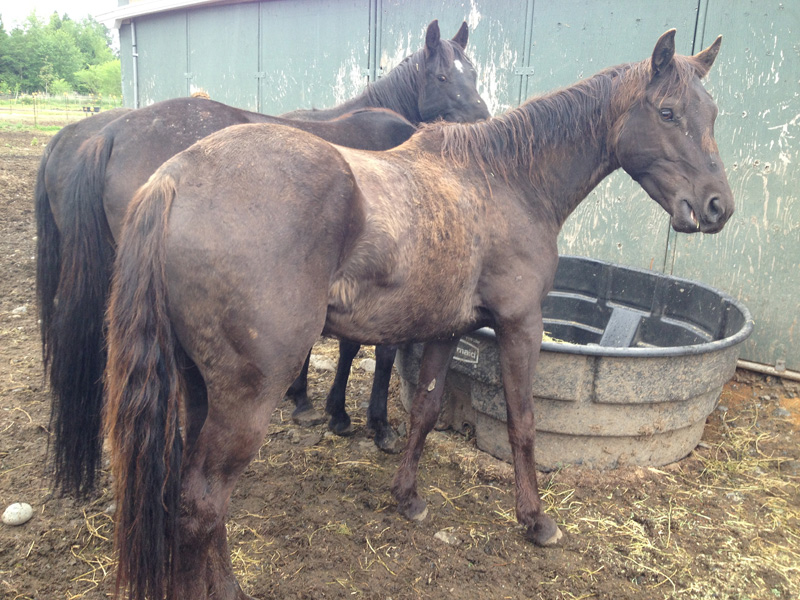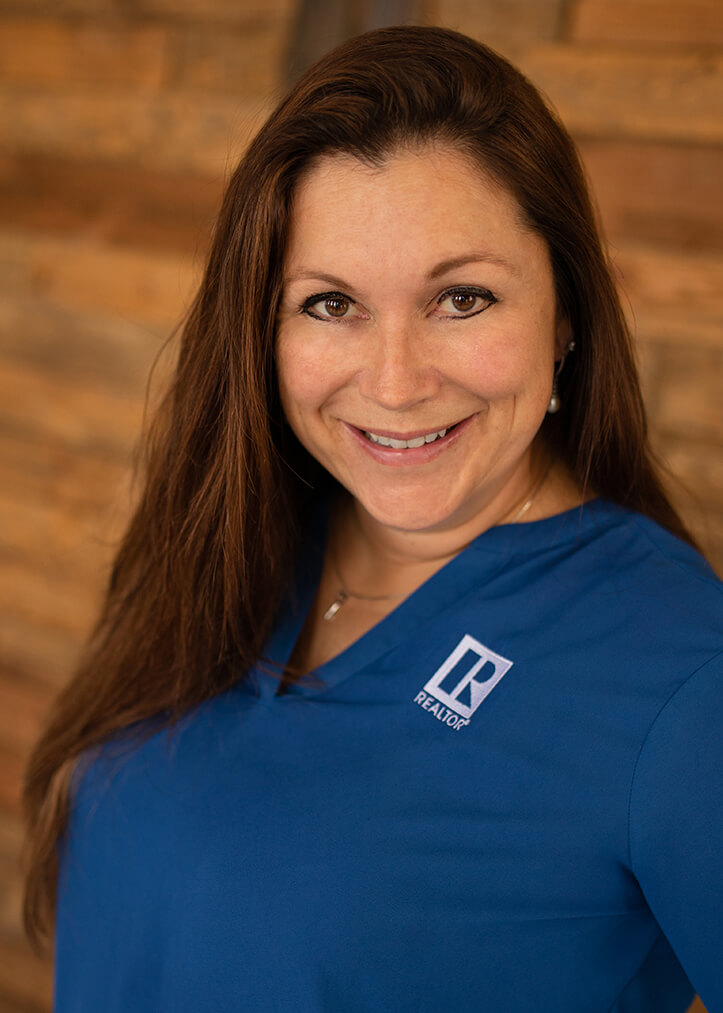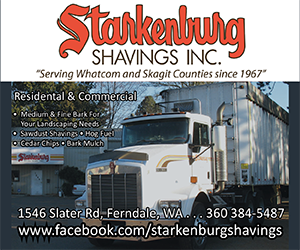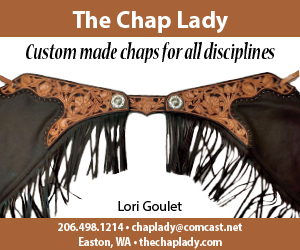Part 2: Bringing the Horse Home
by Allison Trimble

Ok, you’ve thought it out carefully and taken the plunge into a rescue horse situation. First things first: for most truly “rescued” horses (meaning from neglect or abuse), the initial goal is helping them return to health. Let’s consider the following:
Quarantine. Regardless of where the horse is coming from, quarantine is a necessity if there are other horses on the property, or even on adjoining properties. Horses in poor health and from neglected circumstances are more susceptible to, and more likely to be carriers of, a multitude of diseases. I suggest putting them in a small, sturdy pen, with shelter. Until it is clear how the horse will handle new surroundings and fences, it is best to minimize the opportunity for escape or injury.
Vet Check. Even knowledgeable horsemen defer to a trusted veterinarian. Knowing if there are significant health and wellness issues is helpful in making good decisions for the horse. If the horse is difficult to handle, the ability of a vet to sedate the horse can help tremendously in doing some of the necessary next steps. A veterinarian should always be consulted on the steps to follow as well; their professional insight and experience is crucial for the horse’s return to health.
Feed. I wish it was as simple as piling hay and grain in front of the horse, but depending on the horse’s health, that could prove deadly. Most feed companies have nutritionists that will come for free and evaluate the horse to aid in designing a feeding program. The safest choice is to start on a good supply of quality grass hay and plenty of clean, fresh water. The program may slowly introduce additional forage, such as alfalfa, and incrementally introduce grain until the proper feed amount is reached. Note: A horse requires much more feed to gain weight than he will to maintain it.
De-worming and Parasites. Unhealthy horses are typically full of internal and external parasites, both of which thrive on compromised immune systems. Parasites work against health and weight gain/maintenance because they feed on the horse itself. Under a vet’s supervision, and after a stool sample, design a de-worming schedule to get the horse on track. Lice are also notoriously found on rescue horses. Removal requires a series of at least two dustings, three weeks apart.
Teeth. Most rescue horses have not had their teeth done in years, if ever. I have my horses’ teeth done as two-year-olds (wolf teeth, bit seats, etc.) and then as needed for the rest of their life. Poor teeth can greatly affect the horse’s ability to get nutrients from feed. The vet will help make a plan for a particular horse’s dental care.
Hoof Care. Rescue horses can present in various stages of hoof health. Some neglected horses can do reasonably well on certain surfaces, while others’ hooves will be severely damaged or excessively long. Hoof handling is another issue. Finding a good and patient farrier is important to get a horse going in the right direction. Do only what can be done; it may be necessary to split up farrier visits up initially.
Handling. It is best to let the horse settle in. This could take a few days or a few weeks, depending on the severity of the situation. Horses always respond best when they are familiar and comfortable with their surroundings. Until the horse has made a complete return to physical health, training, riding, or heavy work is not advised. What I often see is that a horse may appear quite willing and cooperative when deprived of nutrition, but exhibit major behavioral changes when revived from a quality diet. After the horse is settled in and feeling better it is appropriate and important to start structured groundwork. Next month we will discuss training and handling the rescue horse in more detail as well as ways to build a neglected animal into a willing partner.
For Love of a Rescue Horse – Part 1: Practical Realities of Rehabilitation

Allison Trimble is a Realtor® specializing in equestrian properties, farm and ranch properties, and residential real estate. She’s a former horse trainer, and a current owner, breeder, and non-pro competitor in cow horse and reining events. For many years, Allison wrote a monthly column for The Northwest Horse Source.
Learn more at www.allisonblakerealestate.com





